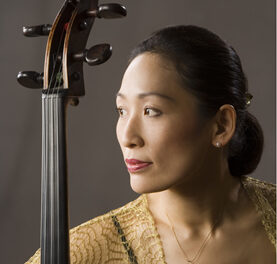It was a pleasant surprise to hear the (unexpected inaugural) concert by the Cape Fear Jazz Orchestra at the Cameron Art Museum in Wilmington. The audience for this sold-out event was highly enthusiastic with their nearly two-hour performance and probably not surprised either. The CFJO, made up of talented local musicians, was formed about a year ago as a non-profit repertory organization related to the long established Cape Fear Jazz Society. The16-piece band is under the Musical Directorship of pianist and trombonist Jerald Shynett in collaboration with its founder saxophonist Max Snyder.
While the performance started off somewhat tentatively with the Henry Mancini standard “Days of Wine and Roses,” the band soon warmed up with dynamic solos by Snyder and trumpeter Aaron Lane. The pieces were flawlessly executed but some seemed to have a “stock arrangement” feel at times. There were exceptions however, the most interesting of which was Shynett’s arrangement of Sigmund Romberg and Oscar Hammerstein’s “Softly as in a Morning Sunrise” that alternated between Latin, light rock, and swing segments; the solo by the young tenor sax player Sean Meade was probably the most musically innovative of the evening, together with a rare forceful piano solo from Shynett, from whom it would have been nice to hear more. Despite the rich and vibrant sound that Doug Irving extracted from his double bass, the rhythm section at times did not seem to be interacting as well as it might with the soloist, which is necessary in a setting where one has essentially a small group soloing within a big-band structure. It would also have been nice to hear a little more assertiveness from drummer Luke Wilson, in addition to his excellent metronomic time keeping.
On the second half of the show, following a short break, the band played with considerably more authority with a sky-rocketing solo from Snyder that really demonstrated his mastery of the alto sax; it was on a blues that gave the soloist(s) the freedom to play “outside the box” without disrupting the format of the piece. Snyder capitalized upon this with both innovation and with his forays into the abstract. The Vernon Duke ballad “I Can’t Get Started” featured a delightfully mellow trumpet (or was it a flugelhorn?) solo from Mike Herbert. The concert concluded with Shynett’s most creative arrangement of the evening – Wayne Shorter’s 1967 composition entitled “Black Nile.” Altogether this was a well-rehearsed concert that reflected the dedication of the musicians involved. They undoubtedly will provide an outstanding contribution to the appreciation and enjoyment of big band jazz in Southeastern North Carolina and beyond.











